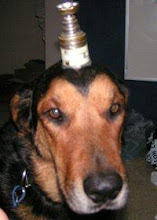This amazing subject cannot really be understood without taking the time to put it all into context. One must start somewhere and from a US perspective it makes sense to begin in the era of the 1980's. However there are extensive papers and imperative historically significant issues that have come before this era. I can only hope that readers are familiar with the subject or perhaps in the future I will have the time to discuss them at length.
Specifically we will start in 1979. It was in 1979 that the USSR had invaded the country of Afghanistan.
So it was in the 1980's that Jimmy Carter in the White House as president of the USA was forced to deal with central Asia in a major way. He was an old naval officer who trained under Hyman Rickover who planned to become an integral part of the beginnings of the US nuclear submarine deterrent.
It was during his tenure as president that domestic issues in Iran reached the boiling point. In Iran eventually the leader, Shah Mohammad Reza Pahlavi was forced into exile. He was the son of Reza Shah who led a military takeover of the country in 1925. Reza Shah was a very partisan anti-communist which suited the US and British interests very well. At that point in the great game of foreign affairs it was the policy of both the British and the Americans to deny the USSR a warm water port. Iran was a 0critical part of this strategy.
So it fell to Carter to handle the very ugly situation in Tehran. There was an Islamic revolution in Iran as well as a new and open dislike for the US by the government of Iran. Earlier in the 1950's the Oil and Gas assets critical for armed democratic resistance of the communists was nationalized by the Iranians thus seizing it from British Petroleum's control. Bp was formed in 1908 and was an integral part of Middle Eastern Oil resources critical to western Europe. It may interest my readers to note that the British and US governments sponsored a coup in 1953 where Mossadegh who had nationalized the oil assets by successfully challenging the 2nd Shah was in turn overthrown in the coup. The Shah was restored to power and oil continued to flow.
Carter now had two significant foreign policy issues to deal with. The first was the invasion by the Soviets of Afghanistan and the subsequent Islamic revolution in Iran.
It was under these conditions that Ronald Reagan assumed the mantle of leadership and became president of the US.
Subscribe to:
Post Comments (Atom)

No comments:
Post a Comment